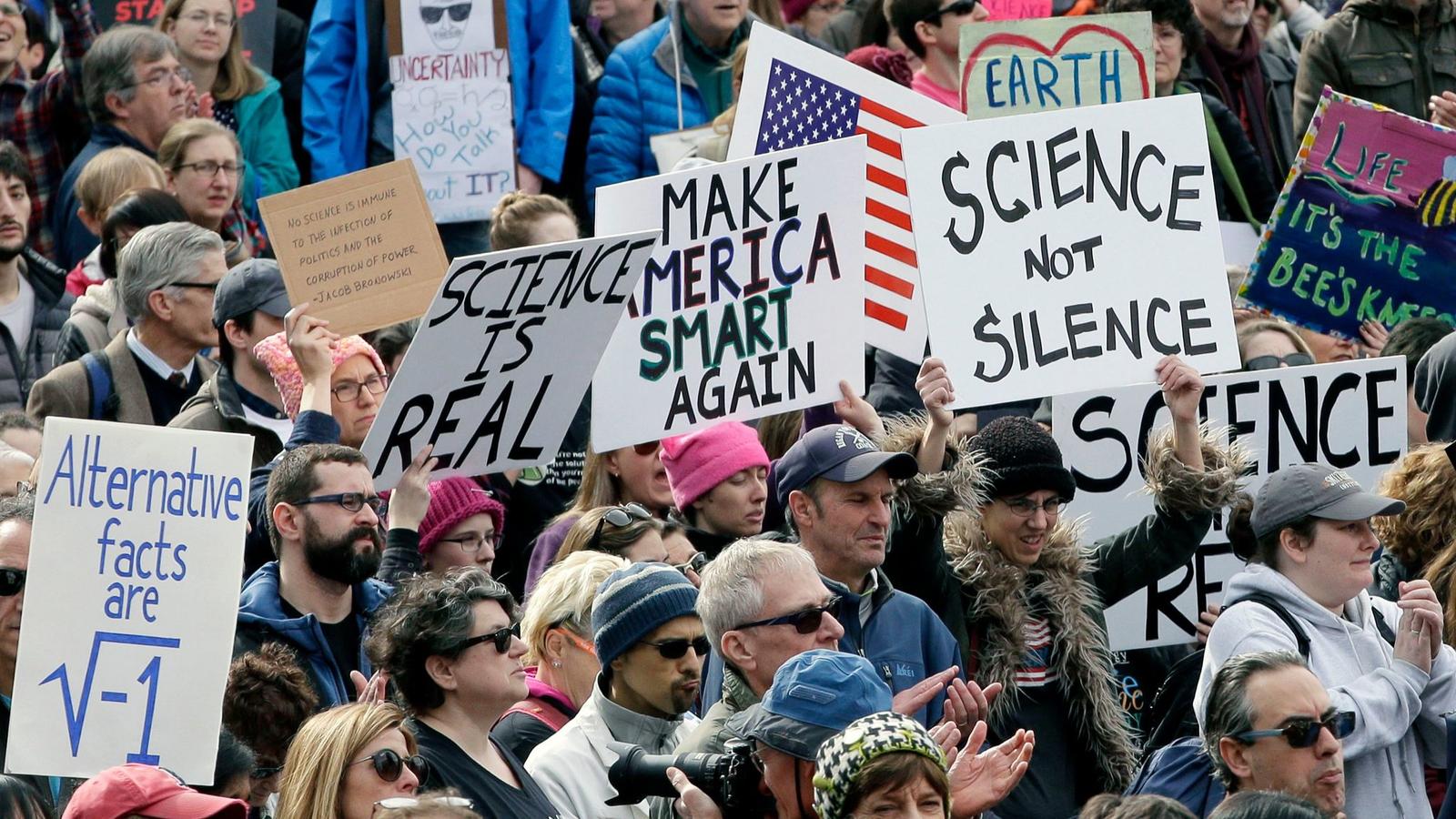
Steven Senne / Associated Press
On Saturday, April 22, thousands of marchers worldwide participated in the March for Science— a nonpartisan event championing scientific funding, education and government policies based on scientific evidence.
Marches took place on all seven continents, including Antarctica, at an estimated 600 locations. In the U.S., marches took place in all 50 states, with 15,000 marchers attending the main march in Washington D.C., 12,000 marchers participating in Los Angeles and 2,000 marchers participating in Oklahoma City, according to Reuters.
Prior to the march Rush Holt, Ph.D., CEO of the American Association for the Advancement of Science (AAAS), gave an exclusive interview with R&D Magazine about the reasons for the march and what scientists can do moving forward to ensure that science initiatives are not lost.
Holt, who is a physicist and formerly represented New Jersey’s 12th district as a Democrat for eight terms in Congress, spoke on a number of issues from a unique perspective as a former politician as well as a scientist.
R&D Magazine: With this new administration, how can scientists ensure that the field will continue to be important?
Holt: The remarkable thing is we’ve already seen the first step. Even before the march occurred we have an international declaration by thousands and thousands of scientists that they should be out in the public square, which is really unusual. Most scientists spend their time explaining why they should not be out in the public square, why they should not try to engage with the public and policy makers. Mostly what it is, is that they have a personal, psychological aversion to going public and then they develop a justification to why they did not go public. Just the fact that the march has attracted so many scientists who say this is a good thing, that’s a very big step.
R&D Magazine: Outside of the march, what should scientists do to ensure the future of the field?
Holt: The next step for the march organizers and organizations like the AAAS is to extract a coherent message from all the commotion associated with the march and put in place a process for capturing all the energy and the talent of the marchers and channel it to effective action. There are some things that have to be done. There has to be actual defense of the conditions that science needs to thrive. If scientific research and scientific thinking are to thrive, you need free exchange of ideas, you need freedom of travel, you need freedom to choose the research topics, you need diverse perspectives and diverse people in the research teams and you need adequate funding, and that would include public funding. Not exclusively of course, there certainly is a place for private sector funding— which now in research and development exceeds public funding— but you actually need policies that defend those things.
That means you need to find ways to influence the policy makers and not just for funding for research, but for sensible immigration policies so you have freedom of travel and freedom to collaborate. You need sensible policies of openness so government scientists are permitted to speak out. You need sensible policies for government scientists and sensible policies in the private industry so that scientists really have freedom to explore and to choose the questions they work on. There was a day where Bell Labs and Xerox and IBM gave their researchers a lot of freedom to choose the questions they would try to answer scientifically. We need to get back to that. Those are specific things that people should be lobbying about.
R&D Magazine: What should concern the public about decreasing the role of science in the government?
Holt: The general public should be insisting that public policies of all kinds should be based on the best scientific evidence. This is whether you are talking about policies on drug addiction or vaccination, or deployment of weapons, climate change, or the teaching evolution in the schools. They should insist that these decisions not be made on opinion or on wishful thinking or in pre-cooked ideologies, but actual evidence. Where you go from the march to get to those points is not obvious and the marchers and the organizations involved have to work on that. Certainly this is something AAAS does all the time; we not only have workshops and classes in effective communication and public engagement but we spend a lot of time thinking about what is the best way to get the message out to persuade people that these conditions for science to thrive must be defended. There’s no one answer, it’s not easy, but it’s too important not to try to do it.
R&D Magazine: Is it important for people in the science community to understand government politics better?
Holt: Scientists need to be able to point out how restrictions on travel actually hurt science. They need to be able to point out how gag orders on government scientists actually hurts the progress of science and how unpredictable funding—turning it on and off—hurts the progress of science. So who better than scientists to point that out if they could learn to communicate more effectively. With respect to President Trump, the remarkable thing is the extent of his silence about science. He tweets all sorts of things, he doesn’t mind speaking freely on all sorts of things, but not science. You almost never hear him talking about science, the silence is really ominous. It makes me think that he really doesn’t understand and appreciate how important science is, how helpful it could be to him and to the people if we showed better support for science. Certainly when his Office of Management and Budget comes out with a proposal for the budget that would really slash science that certainly seems to indicate a lack of appreciation for science. In his immigration orders I’ll bet science never entered his brain once, and yet it has a real effect on the progress of science. Mostly what we see is silence, nothing about science to the point that is becoming ominous.
R&D Magazine: What do you think the role of science in the federal government should be?
Holt: If you take the time to look you’ll find science in almost every public issue. But generally the scientific components are overlooked. One thing you need are people with a science perspective, that doesn’t necessarily mean trained scientists, but often it does. We need people with a science perspective throughout the government—the legislative branch, judicial branch, administrative branch. Unfortunately, not many scientists want to go into public policy, into public service. That’s unfortunate because it means that there is nobody there at the table who points out the scientific components of these public issues. That means that the scientific components get no attention or in some cases really mistaken attention. People make some serious mistakes in policy because they just don’t really see the science there and don’t bother to ask what is known scientifically about the issue.
This interview has been edited for length and clarity




